Ah, retinol. The golden child of skincare. From stalling the hands of time to clearing acne and giving skin a smooth texture, it does it all. But what if retinol doesn’t work for you and your skin can’t handle it? As the popularity of retinol in beauty products grows, so does the number of us who have adverse reactions to it. If you can’t tolerate the powerful ingredient, don’t worry, you’re not alone. Luckily for those of us who may be feeling left out, there’s no shortage of ingredients that can achieve the same effect without irritation and peeling.
So how do you know when it’s time to try a retinol alternative? If you’ve gotten past the acclimation period and your skin is still red and irritated, then retinol probably isn’t for you. And if you’re tempted to try to push through it, remember this: if retinol is causing damage to your skin, then you’re negating any of the benefits that would come with it.
The best retinol alternatives
If you can’t tolerate retinol, it’s time to put it down and explore the world of gentle and effective skincare alternatives. There’s a good chance you’ll find your hero here, so scroll on to see what are the best products and ingredients to replace retinol with and achieve your goals sans irritation.
Bakuchiol
Herbivore Bakuchiol Retinol Alternative Smoothing Serum
Bakuchiol is often hailed as the plant-based answer to retinol, earning it the nickname of “botanical retinol.” This natural alternative is brimming with skin-renewing properties similar to those of retinol and works more gently to provide benefits without sensitivities. Just like retinol, bakuchiol promotes cell turnover, stimulates collagen production, improves skin firmness, treats acne, and brightens. Need proof? A study found 0.5% bakuchiol cream applied twice daily provided similar results in terms of improving aging signs to a 0.5% retinol cream applied once daily.[1]
We have big hopes for Herbivore Bakuchiol Serum. This retinol-alternative serum contains a whole host of natural extracts to leave skin smooth and hydrated. And it’s gentle even for the most sensitive complexions.
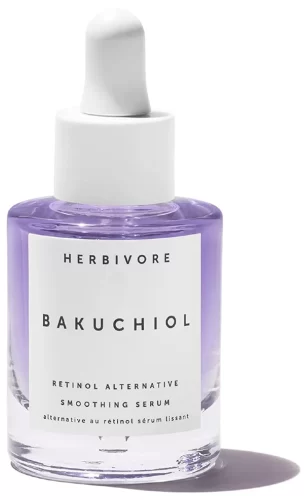
Glycolic acid
Drunk Elephant Framboos Glycolic Resurfacing Serum
Glycolic acid is an alpha hydroxy acid (AHA) made up of tiny water-soluble molecules derived from sugarcane. Due to its molecular size, it can only penetrate the skin’s outermost layer, but don’t let that fool you—glycolic acid causes less irritation while still exfoliating the skin as effectively as retinol. It increases cell turnover by breaking up the dead cells on the outer layer of the skin, creating the same shedding effect you see with retinol to reveal smoother, more even skin.
All in all, a glycolic acid serum makes an ideal retinol alternative. We recommend Drunk Elephant Framboos Glycolic Resurfacing Serum. Its primary ingredient is glycolic acid blended with other AHAs and BHAs to exfoliate the skin without leaving it as dry and sensitive as retinol does.
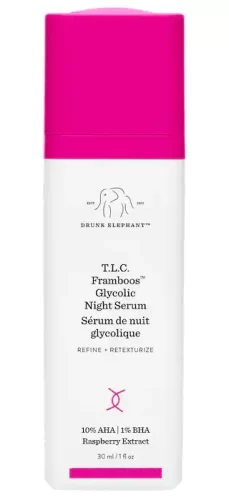
Granactive retinoid
The Ordinary Granactive Retinoid 2% Emulsio
Granactive retinoid is a newer generation of the retinoid family that showed increased effectiveness and tolerance in clinical studies compared to retinol.[2] In the grand scheme, granactive retinoid works the same way as retinol to increase cell renewal, increase collagen and thicken the skin. But here’s the kicker: granactive retinoid is more stable and causes less irritation because it doesn’t go through the same conversion process to become the active form of vitamin A.
The Ordinary Granactive Retinoid 2% Emulsion is a game-changer for sensitive skin that gets bad reactions from standard retinol products. It also contains ingredients like bisabolol with soothing effects.
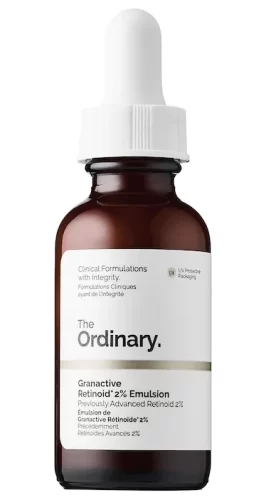
Rosehip oil
Herbivore Phoenix Facial Oil
There’s no shortage of oils in skincare, and one of the most popular right now is rosehip. It’s lightweight, easily absorbed, and doesn’t leave that greasy feeling that most oils do. The nourishing oil contains retinoic acid, the active form of vitamin A, and beta-carotene, which is converted to vitamin A. It’s very much like retinol. Though it won’t deliver the same transformative results, it’s milder and contains other skin-loving ingredients to compensate, including fatty acids that restore the moisture barrier and antioxidants that protect against environmental damage. It’s no wonder why rosehip oil has become the go-to retinol alternative for beauty enthusiasts with dry skin in need of a hydration boost.
We are betting on Herbivore Phoenix Facial Oil. It’s chock-full of botanical oils to improve skin radiance and deliver retinol-like benefits sans redness.
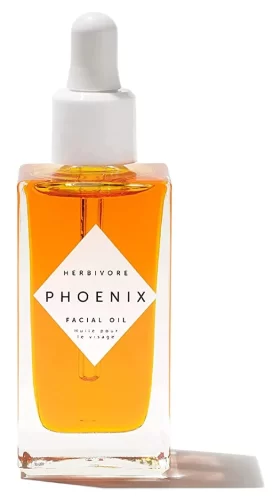
Vitamin C
Sunday Riley C.E.O. 15% Vitamin C Brightening Serum
Incorporating vitamin C into your skincare is a no-brainer, and chances are you’re probably already using it. Vitamin C is a powerful antioxidant that protects the skin from external stressors such as free radicals and pollutants. Unlike retinol which chemically exfoliates the skin and promotes new cell growth, vitamin C delivers its anti-aging benefits by being one of the key components to collagen production in the first place. It also acts on pigment-producing cells to brighten dark spots.
Sunday Riley C.E.O. Brightening Serum is ready to replace your beloved retinol product with a formula powered by 15% vitamin C. It promotes an even-looking complexion, attacks aging signs from all angles, and combats dullness without leaving your skin struggling to recover.
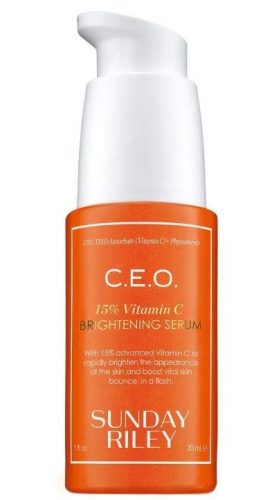
Resveratrol
Caudalie Resveratrol-Lift Instant Firming Retinol Alternative Serum
Resveratrol is a type of polyphenol mostly found in grape skin that offers antioxidant and restorative benefits. It firms, lifts, and reduces the look of wrinkles by increasing collagen levels in the skin. Also, like all antioxidants, resveratrol protects the skin’s natural barrier to reduce dehydration and congestion and improve the overall tone and texture.
One to try is Caudalie Resveratrol-Lift Instant Firming Retinol Alternative Serum. According to the brand, it’s proven to be twice more effective than retinol to visibly firm skin. This formula is also super gentle, giving your precious skin barrier a break from the harsh effects of retinol.
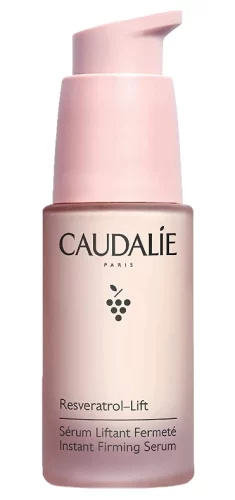
Peptides/EGF
SkinMedica TNS Advanced+ Serum
Once upon a time, retinol was the king of anti-aging. But then, a challenger appeared on the scene: peptides. These little chains of amino acids might not sound as sexy as the mighty retinol, but they’re proving to be just as effective at smoothing out wrinkles and improving skin texture. And when it comes to peptides, one of the most powerful players is epidermal growth factor (EGF). EGFs are naturally occurring proteins that are responsible for stimulating cell growth and proliferation. They work by binding to various skin receptors, which then trigger a cascade of signals that ultimately leads to increased collagen production.
SkinMedica TNS Advanced+ Serum is made with advanced growth factor technology and was clinically proven to lift sagging skin. It’s expensive, but not even retinol gets close to its potency.
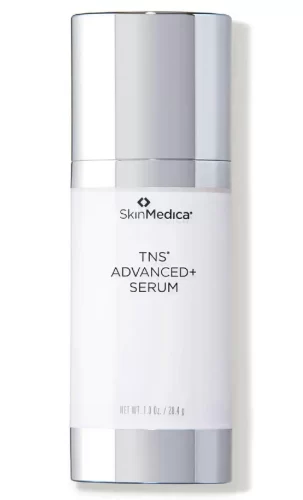
Gentler forms of retinol
If your skin is too sensitive to handle retinol, but you still don’t want to give up on it, the best thing you can do is try gentler forms of retinoids, such as retinyl palmitate. Retinyl palmitate is a retinol ester with added fatty acids, and it’s the least irritating of all retinoids because it has to undergo more conversions to get into the active form of vitamin A. Another option is encapsulated retinol. This technology takes things up a notch by encapsulating the retinol molecules, controlling their release in skin tissues to minimize irritation while still reaping the long-term benefits.
Who should avoid retinol?
Retinol is great, but the truth is, there are quite a few of us who shouldn’t be using it. You should avoid retinol if you:
- Are pregnant
- Have rosacea
- Have sensitive skin that has reacted to chemical acids
- Have untreated skin conditions
- Spend a lot of time outdoors without sunscreen
- Use a tanning bed
- Regularly undergo facial treatments such as waxing or laser hair removal. Always let your esthetician know that you use retinol before facial treatments.
Do retinol alternatives work?
When it comes to skincare, there’s no one-size-fits-all solution. Some people’s skin may react beautifully to retinol, while others experience irritation and redness. That’s why it’s so important to have a range of retinol alternatives to choose from. They may not work in the same way as retinol, but that doesn’t make them any less effective. Plenty of ingredients offer anti-aging benefits, such as vitamin C, peptides, and resveratrol, just to name a few. So don’t be afraid to experiment and find what works best for your individual skin. After all, the key to great skin is finding the right combination of products that work for you.

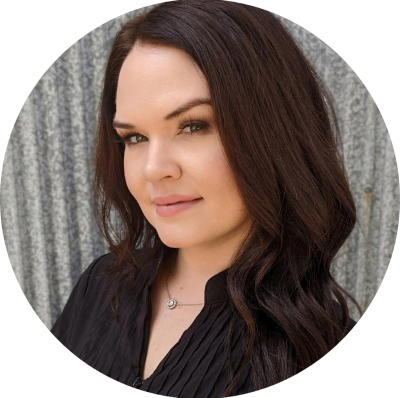

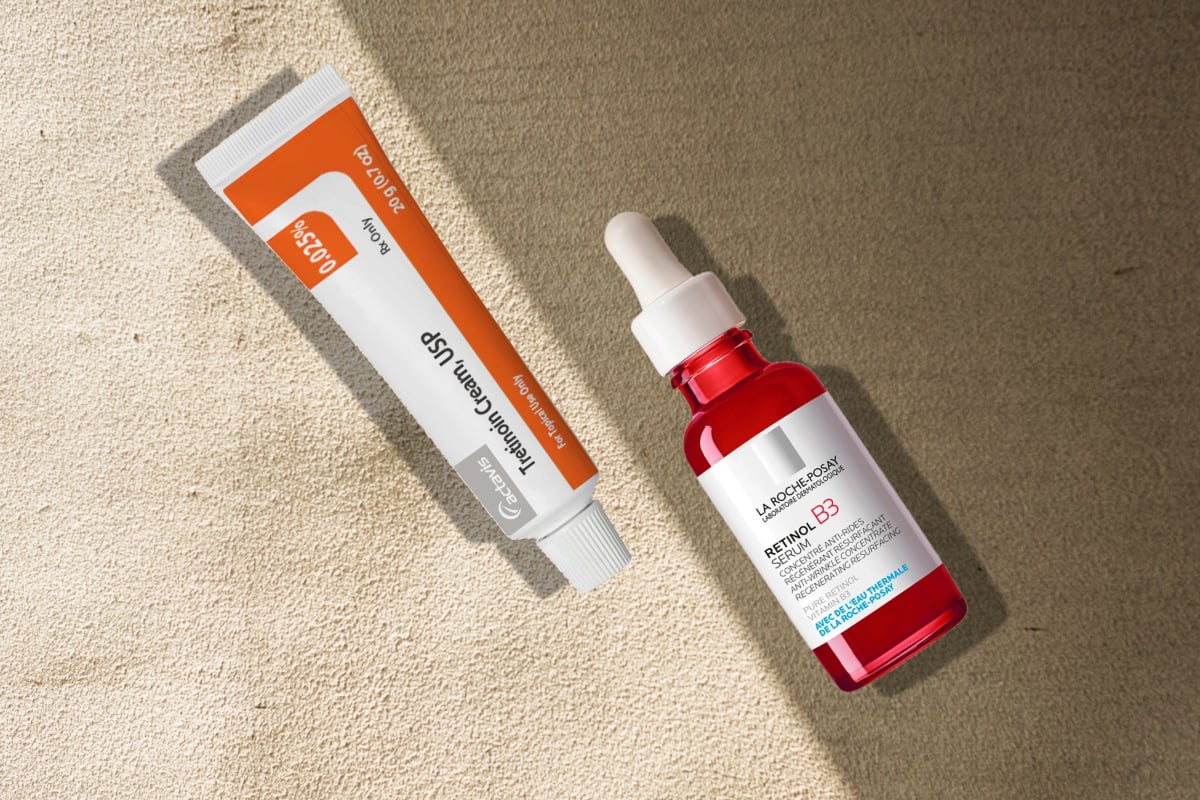
![Does resveratrol in red wine benefit your skin? While sipping on a glass of red wine can be a delightful experience, relying on it for skincare benefits is not the best idea. Sure, red wine contains a smidge of resveratrol, but let's put things into perspective. The concentration of resveratrol in red wine is relatively low. Red wines, specifically Pinot noir from France, typically contain 0.361-1.972 mg of resveratrol per liter.[8] To hit that reference dose of 500mg of resveratrol, you'd need to drink a lot of wine. We're talking about downing anywhere from 100 to 1000 glasses per day. It's a scene straight out of a wine lover's wildest dreams, but definitely not the healthiest approach. Resveratrol Benefits for Skin](https://womensconcepts.com/wp-content/uploads/2022/03/Resveratrol-Benefits-for-Skin.jpg)
